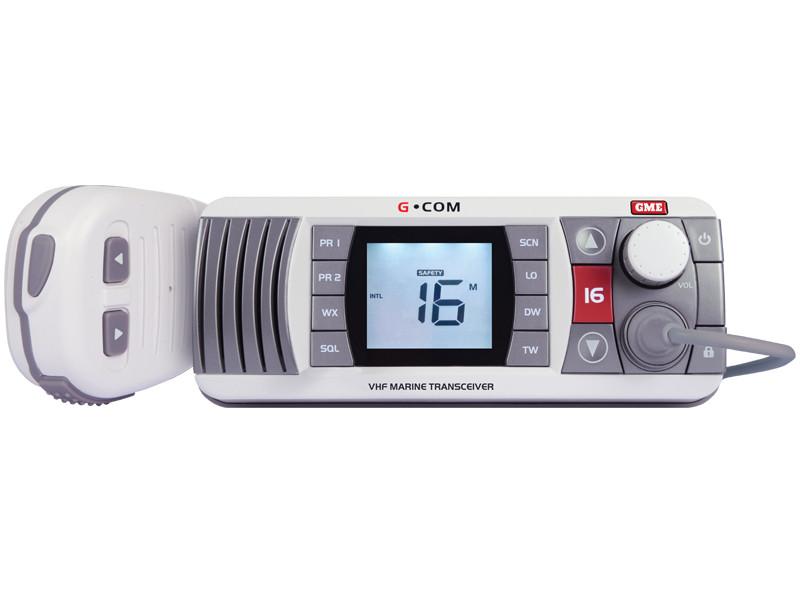
When it comes to boat accessories, many are dispensable. Do you really need that inflatable floating drinks cooler? Well, maybe. But one thing nobody should dismiss is a VHF marine radio. Not only are they handy for getting a local weather forecast or seeking assistance for things like a dodgy engine, in an emergency they can be the only way to call for assistance.
Why do you need a VHF radio?
In an age where everybody has a mobile phone, a dedicated marine radio might seem like overkill. But marine radios have many advantages over mobile phones:
- They are more rugged and sea-worthy
- They won't run out of battery
- They don't just communicate between two parties - if you send out a distress call on VHF, all nearby boats will hear it
- They won't lose coverage
So, while mobile phones are still a good thing to have on board, their effectiveness in emergencies can't match that of a VHF radio.
What qualifications do you need?

Anybody operating a marine radio on board a vessel must be qualified. The specific qualification you'll need depends on a number of factors, for most recreational boaters in Australian territorial waters (defined as 12 nautical miles from the Australian coastline), the Australian Waters Qualifications (AWQ) will be enough.
You can get this by finding a registered training organisation (most volunteer marine rescue groups are one, or have contacts with one) and taking the test. If you're successful, you'll be issued with a statement of attainment.It might seem like a headache, but there are good reasons for making sure everyone who uses a marine radio is qualified. The most important is that it means everyone's on the same page - all operators know how to make distress calls, respond to them and communicate clearly.
How do you make an emergency distress call?
The steps for using a VHF radio in an emergency are simple:
- Change to channel 16
- Call "mayday, mayday, mayday" three times
- Give the name of your vessel three times
- Give your position as accurately as possible, as well as local conditions
- Describe the problem, the assistance needed and the number of people on board.
When you receive a response, you will likely be asked to switch to a working channel, leaving channel 16 free for any other vessels in distress.
All of this points to a VHF radio as being an indispensable boating accessory to add to your kit. For more top accessories like it, check out our online electronics store.




